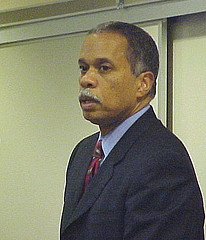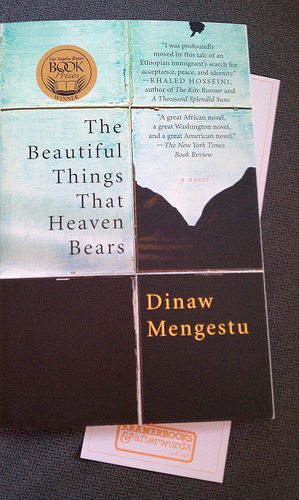Today, erstwhile-NPR Analyst Juan Williams was on the second hour of the Diane Rehm Show, here at WAMU. I listened in…
Interesting: Juan and Diane are good friends, have been for many years; he has been on DR show several times. He thanks her for speaking to him during this “turmoil”. It’s a nice reminder that he’s an actual person, with a long history beyond this and not just a political football or insensitive panderer.
The NPR ombudsman has received 22,000 messages about this? Wow.
“Diane I’m the same person in both venues (NPR and Fox), but I’m aware of the differences in both venues.
“When I was fired, last Wednesday, the woman who called me said, “would you have said the same thing on NPR?” and I said, “of course”…(she tried to say I had violated journalistic ethics)…it would violate my journalistic ethics if I didn’t tell the truth!”
Diane is playing the actual exchange between Williams and O’Reilly for us.
DR: Do you have any regrets…
JW: None!
Williams says that his comment about Muslims is not analogous to the comparisons his critics are making to negative speech about African Americans (i.e. “How would he feel if people said something similar about Black people?”): “There’s no history of black people getting in airplanes and…”. He goes on to describe how fear can be appropriate, even in “small town America”, because “it’s a matter of being aware of your environment”. He clarifies that he wasn’t advocating profiling or extra scrutiny, saying “I simply admitted to my feelings.”
Continue reading






